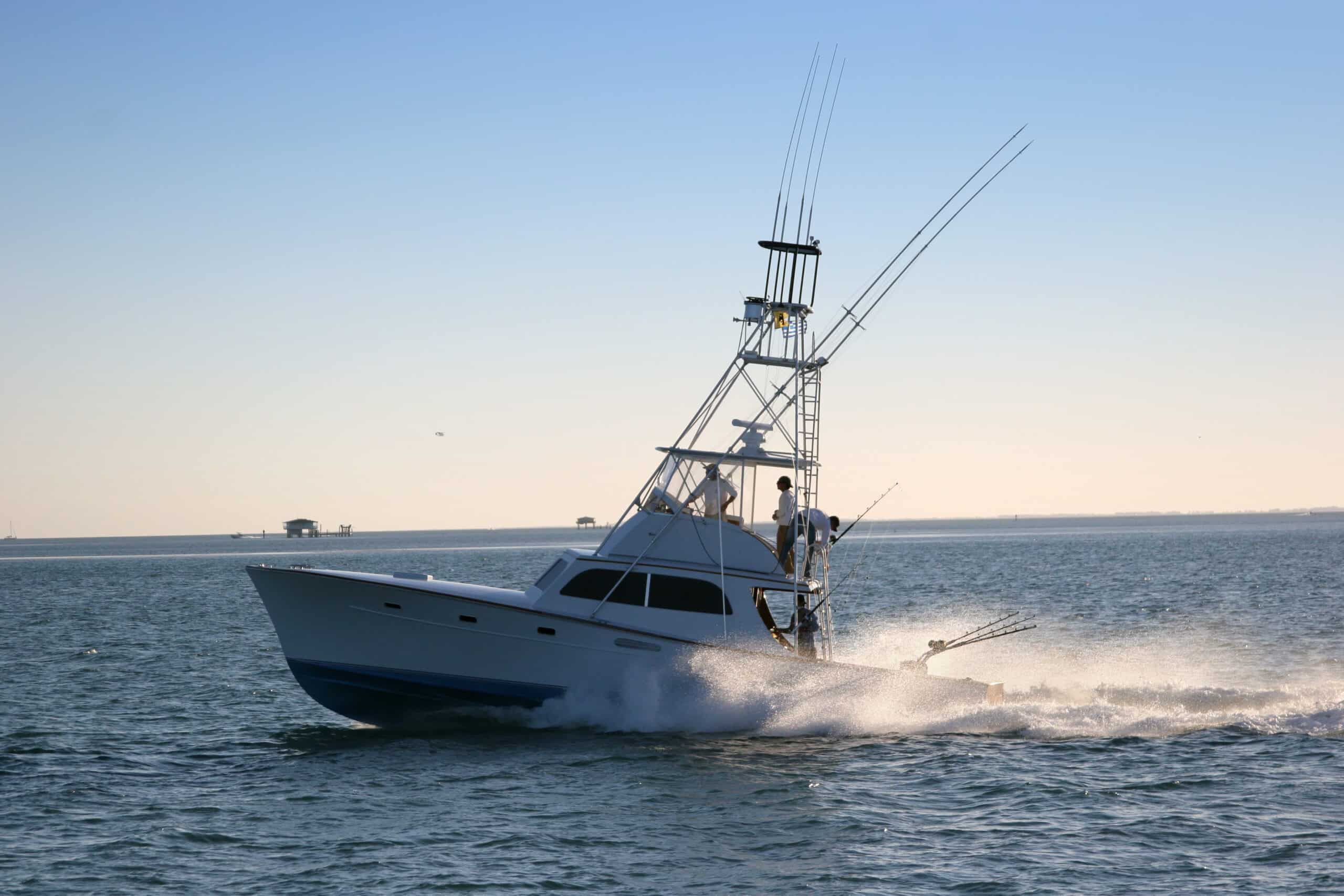Alexandria, VA – December 14, 2023 – This week, U.S. Representatives Mary Sattler Peltola (D-Alaska), Vicente Gonzalez (D-Texas), Henry Cuellar (D-Texas) and Brendan Boyle (D-Pa.) wrote NOAA Fisheries Assistant Administrator Janet Coit urging her to suspend further action on proposed changes to the North Atlantic right whale vessel speed rule. The proposed federal regulations – now in the final rule making stage – would broaden the current 10-knot (11.5 mph) speed restriction to include vessels 35 feet and larger (down from 65 feet); expand the go-slow zones from discrete calving areas to essentially the entire Atlantic Coast out as far as 90 miles, and extend these speed restrictions as long as seven months a year.
The letter, led by Congresswoman Peltola, states, “… NOAA Fisheries can and should set aside the flawed proposed rule and instead carry out the full and vigorous exploration of technological solutions that can achieve the conservation goals while still allowing reasonable access to public resources. Working collaboratively with subject matter experts who specialize in whale monitoring and detection, as well as communications systems that can get information to vessel operators where and when they need it most must remain the top priority for NOAA Fisheries. Not all of us represent Districts sitting on the East Coast, but we share concerns regarding the economic ripple effects of these restrictions and the implications for how NOAA Fisheries would conduct marine mammal protection management elsewhere in the United States.”
Congresswoman Peltola is the lead co-sponsor of H.R. 4323, a bill that would prohibit NOAA from issuing a rule that modifies or replaces the current North Atlantic right whale vessel strike reduction rule until technological solutions recently authorized by Congress can help better track whales and avoid strikes.
The sportfishing community stands with these Members of Congress in opposition to the proposed rule. While this proposed rule was in development for more than a year, NOAA’s Office of Protected Resources did not conduct any formal engagement with stakeholders, which resulted in a seriously flawed proposal. Among the recreational fishing and boating community’s many concerns, most notable are:
- According to an analysis by Southwick Associates, NOAA’s proposed rule changes threaten to eliminate up to 70,000 recreational fishing trips along the Atlantic seaboard, jeopardizing the $230 billion in national economic contributions from the recreational boating and fishing industry, which supports 800,000 U.S. jobs and 36,000 businesses. In Atlantic coastal states alone 340,000 American jobs and nearly $84 billion in crucial economic activity will be in jeopardy.
- NOAA’s risk encounter model assumes 10-meter draft depth criteria when calculating vessel strike risk. However, 35-to-65-foot recreational vessels rarely have a static draft more than 2 meters.
- An analysis of NOAA data found approximately 5.1 million recreational fishing trips were taken in this region by vessels 35 – 65 feet in length since 2008. Assuming all five right whale strikes during that time were from recreational vessels, and that all these vessels were on fishing trips, the chance of a 35 – 65 foot recreational vessel striking a right whale during an offshore fishing trip is at most 0.000098%, or less than one-in-a-million. Attempting to predict risk on a one-in-a-million chance of a vessel strike is simply not an effective management strategy and highlights the futility of expanding the Seasonal Speed Zones to address such a small possibility of vessel strike interactions.
- Vessel speed is a significant safety feature on a recreational boat. Most recreational boats lack high displacement hull design that often provides ocean-going and commercial vessel stability and the ability to operate safely in significant sea states. The 10-knot speed limit would force recreational boaters to operate in conditions that would compromise safety of the passengers and vessel.
“We thank Reps. Peltola, Gonzalez, Cuellar and Boyle for their leadership and commitment to pursuing sound conservation measures while promoting public access,” said Jeff Angers, president of the Center for Sportfishing Policy. “NOAA’s lack of engagement with the people who actually build and use recreational boats resulted in a seriously flawed proposal that will not save North Atlantic right whales but instead result in the largest takeaway of public access to America’s public waters and crush coastal economies up and down the East Coast. Our efforts continue to have the Agency start engaging with experts from the recreational fishing and boating industry; so far they have failed to do so.”
“The current proposed rule was developed using risk models filled with erroneous assumptions that will do little to actually benefit whales,” said Jeff Crane, president and CEO of the Congressional Sportsmen’s Foundation. “The angling and boating community were among the nation’s original conservationists, and we have repeatedly asked to be a part of the process to find real solutions. We applaud Reps. Peltola, Boyle, Cuellar, and Gonzalez for urging the agency to pause the rule and work with us on more meaningful whale conservation measures without closing down a large segment of recreational access to the Atlantic Ocean.”
“We applaud Rep. Peltola (D-Alaska), along with Reps. Gonzalez (D-Texas), Cuellar (D-Texas), and Boyle (D-Pa.), for urging NOAA to suspend their harmful proposed vessel speed restrictions along the Atlantic Coast,” said Frank Hugelmeyer, president and CEO of the National Marine Manufacturers Association. “The proposed rule is based on flawed economic analyses and inaccurate assumptions and does not take into account the sophisticated technologies that are available to detect and avoid endangered marine life. This blanket speed rule will devastate the American recreational boating industry – the vast majority of which is made of small business owners – and coastal economies that rely on year-round access to our nation’s public waters. Thank you to Rep. Peltola for leading this letter and for demanding that NOAA take a balanced and thoughtful approach to rulemaking that protects the North Atlantic right whale without harming a core segment of the U.S. economy.”
“Protecting right whales or maintaining public access to the ocean is not an either/or proposition,” said Glenn Hughes, president of the American Sportfishing Association. “Unfortunately, NOAA has failed to recognize the immense potential of partnering with our industry on technological solutions to mitigate the extremely rare instances of whale strikes. Instead, NOAA is relying on blanket speed restrictions that will shut down coastal economies without providing meaningful protections for whales. We are grateful to these Members of Congress for their strong call to NOAA to change course.”
Share This Article, Choose Your Platform:
Recent Posts



